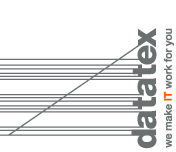
Textile blockchain – trust, but verify
Article by Rajeev Kumar Bobby
 In 2020, it is estimated alone the Made in Italy fashion sector experienced damage of about € 5.2 billion due to gray markets and fake products sold fraudulently. Web and social networks played a big role in this type of harmful scam that affected both companies and consumers. Research shows that, in addition to economic scams, the materials used to reproduce clothes often turn out to be harmful to health and the environment.
In 2020, it is estimated alone the Made in Italy fashion sector experienced damage of about € 5.2 billion due to gray markets and fake products sold fraudulently. Web and social networks played a big role in this type of harmful scam that affected both companies and consumers. Research shows that, in addition to economic scams, the materials used to reproduce clothes often turn out to be harmful to health and the environment.
There is a technology that is the antidote to all these scams and can trace the product to its origin, recognizing its authenticity in a certified and unalterable way using its 4 key capabilities: traceability, security, transparency, and smart contracts known as blockchain. A blockchain is a distributed digital ledger (DLT), capable of storing data/transaction records in a secure, verifiable, and immutable way. Blockchain allows for tracking the supply chain, increasing the transparency and the trust of consumers, and allowing to prevent the widespread fake branding attempts by consolidating the preferential certification origin (PCO) and quality of the final products. The consumer can trace back the whole life cycle of the textile product, from the raw material to the finished product, assuring higher levels of security and buying comfort.
Today transparency and sustainability are two important subjects in the global fashion industry. When it comes to showing detailed information about the production process, only 31% of the top 62 surveyed global retailers revealed part of their garment production sites, according to recent research from the Fashion Revolution (UK) a not-for-profit global movement foundation. This remains suspicious, as the lack of transparency into supply chains makes it more challenging to hold fashion companies accountable for the conditions under which their garments are made. At the same time, there is increasing demand from consumers for more sustainable and ethically made products.
Research conducted by the IBM (USA) in 2022 with the collaboration of the National Retail Federation, NRF (USA) and Lenzing AG (Austria), discovered that 77% of consumers surveyed said sustainability is important to them, 57% of respondents were willing to change their buying habits to reduce any negative impact on the environment, and 70% will actively educate themselves on sustainability through researching the production process.
Therefore, with the rising demand of the customers for the quality, and sustainability of products, being able to communicate transparent information about the full supply chain with the origin is undoubtedly a very important competitive advantage today.
Blockchain adoption leverages the importance, power, and position of the different participants in the apparel value chain. Raw material producers such as the producer of cotton, flax, jute, wool, etc., play a critical role in the apparel supply chain about traceability and sustainability since they are responsible for production at the beginning of the value chain. Fiber producers need to enable the identification of their fibers and ensure their origin and sustainability before they enter complex downstream apparel supply chains. For major brands and retailers, collaborating with fiber producers is critical for the success of their traceability projects, helping to bridge the gap across the different segments of the supply chain. Moreover, fiber producers, yarn manufacturers, fabric manufacturers, and garment makers are also critical participants in the apparel supply chain.
To connect and validate the input from all critical players in the supply chain from fiber to garment producers, there has to be a rich data environment provided by a traceability system such as Now 4.0 Textile ERP by the Datatex Group, Milan/Italy, which can be considered as an authentic and immutable input source for the blockchain technology. Moreover, Datatex is looking forward to developing a strategic partnership with blockchain producers to integrate Now 4.0 with their blockchain platform to provide a traceability-based holistic solution to textile manufacturers and fashion brands.
Datatex Group will be present with its latest portfolio on Techtextil on June 21-24, 2022 in Frankfurt/Germany.

